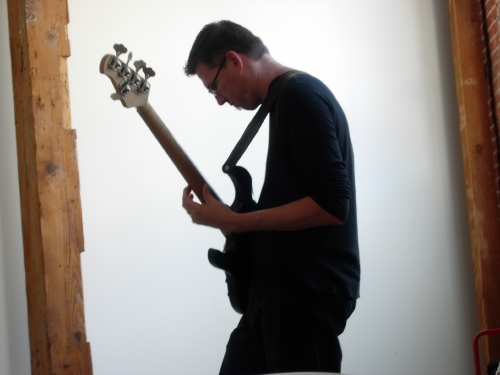
Mick Karn is one of my favorite fretless bassists of all time. He is a true original voice on the instrument and maybe not for everyone; however, his playing is free of fusion cliche´s and downright quirky
. There is not another like him.
(No easy feat as his work with the band Japan is post Jaco) When I heard he was diagnosed with advanced cancer I was stunned. I also heard he had been having some financial difficulties for the past few years and this is a horrible situation for his family. A fund for his family has been set-up and your kind donations will be much appreciated, I'm sure.
Mick, I hope you make a full recovery.
Repost from the Mick Karn website:
MICK KARN APPEAL - Posted 4th June 2010
With great sadness we regret to inform you that Mick has recently been diagnosed with advanced stages of cancer. Mick is currently in a positive mood and undergoing further tests and treatment. His family and friends are close with him, supporting him in practical ways, and surrounding him with their love, friendship and care.
Mick has been struggling financially for some considerable time now and we are hoping that this appeal may help to raise funds for any necessary treatment and perhaps go some way towards providing a small degree of financial support whilst Mick's immediate family provide the care and comfort we would all wish for him. We are hoping that his friends, fans and musical colleagues will, over the coming months, offer any support they feel capable of giving. Quite aside from the sheer brunt of daunting medically-related costs, Mick's clear and major concern is for the security and well being of his wife and young son.
If you would like to make a donation whether as an individual or as a group, you can do so via the paypal link below which has been set up for this sole and express purpose. Any support you are able to give, no matter how small, could make a difference in helping Mick cope during this difficult period. His friends will be looking at a variety of ways to raise funds.
If you would simply like to leave your kind messages of support for Mick, please do so, here: Messages
Steve Jansen has kindly agreed to donate all proceeds from the sale of any Mick Karn portrait from his website to the Mick Karn Appeal. The images can be purchased from http://www.stevejansen.com/imageshop/
We will keep you all updated as often as we can.
Please do note that news is released with Mick's full approval.
Posted: 3rd June 2010
http://www.mickkarn.net












